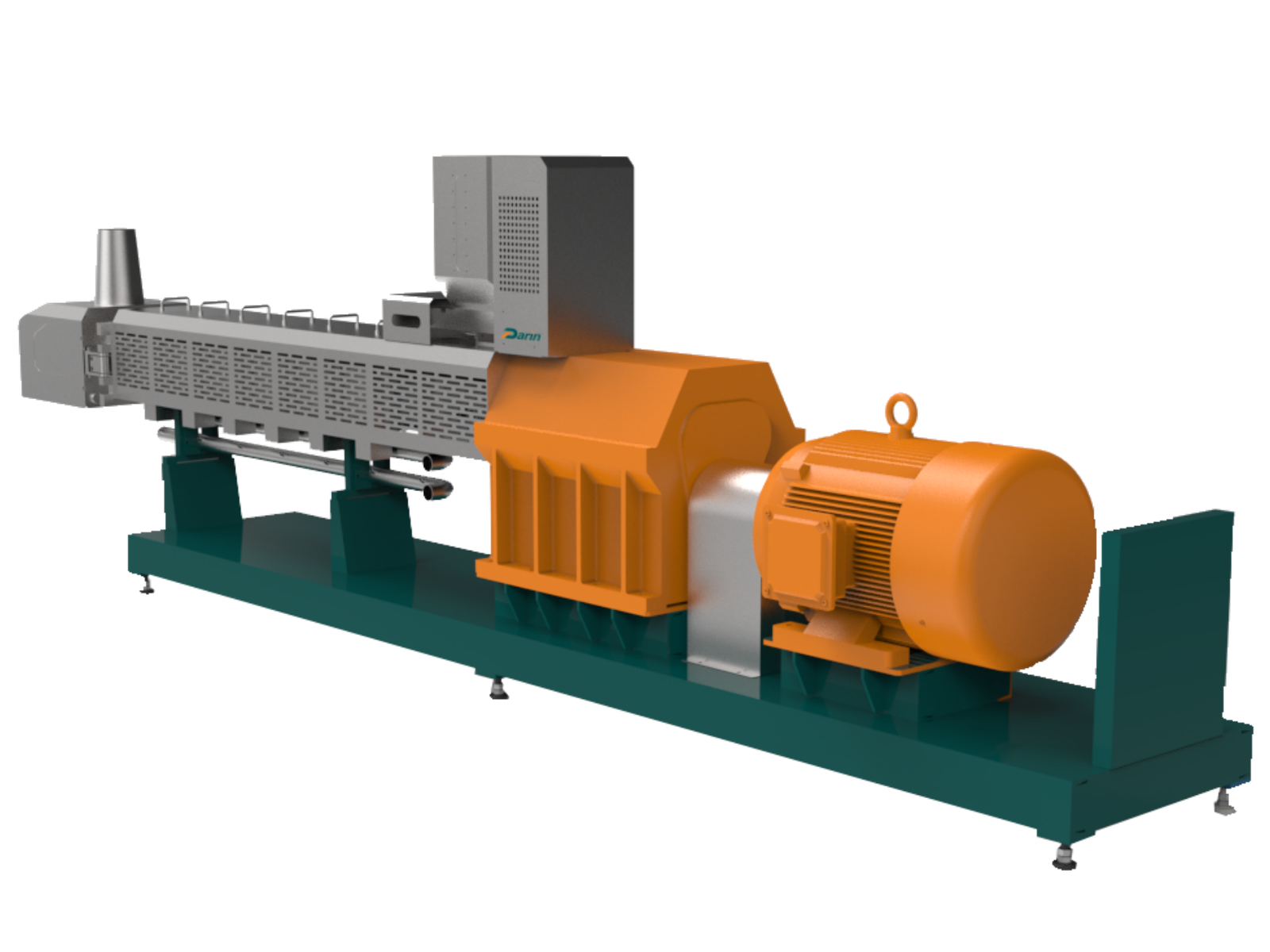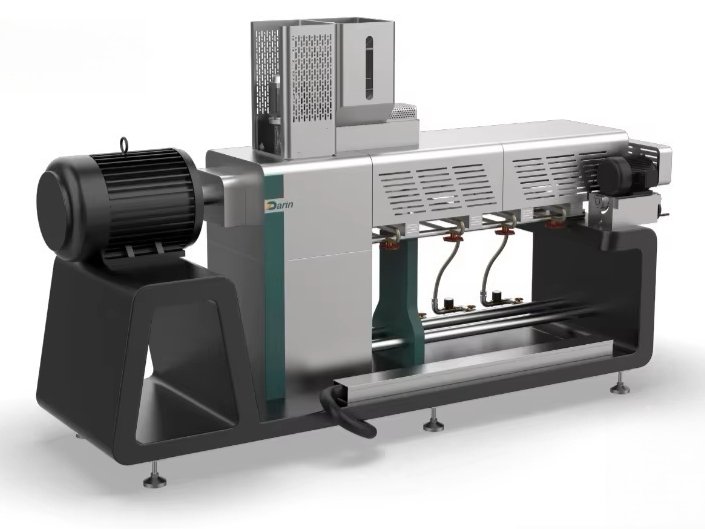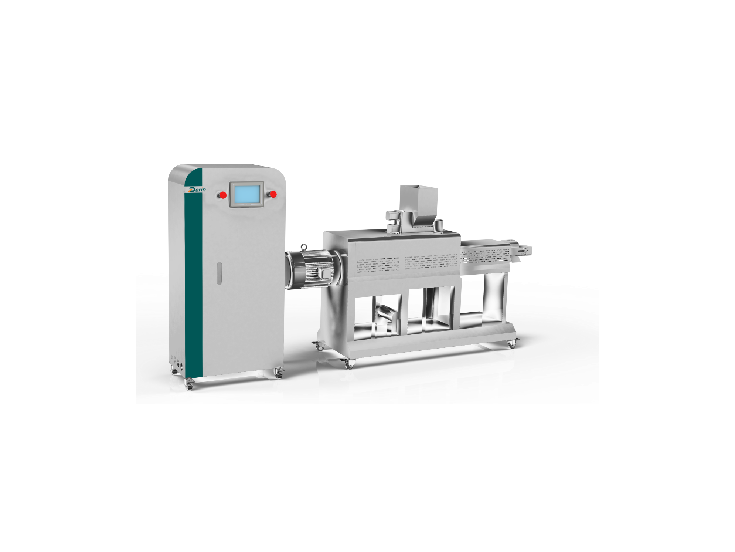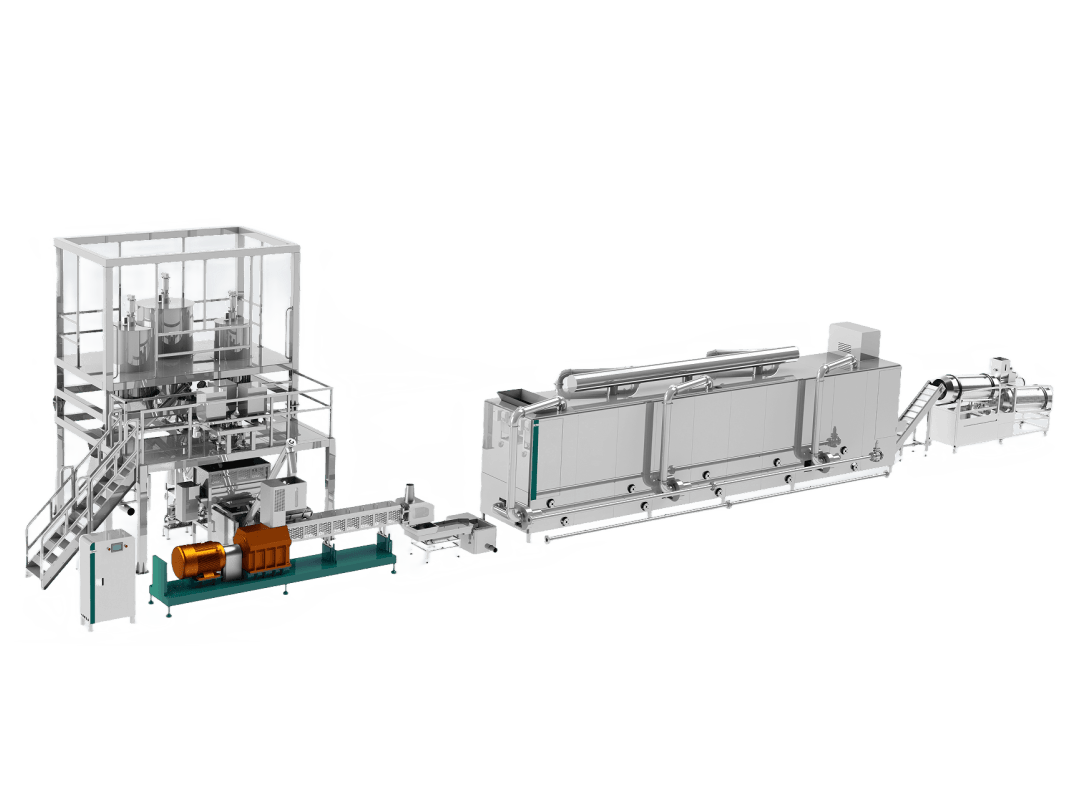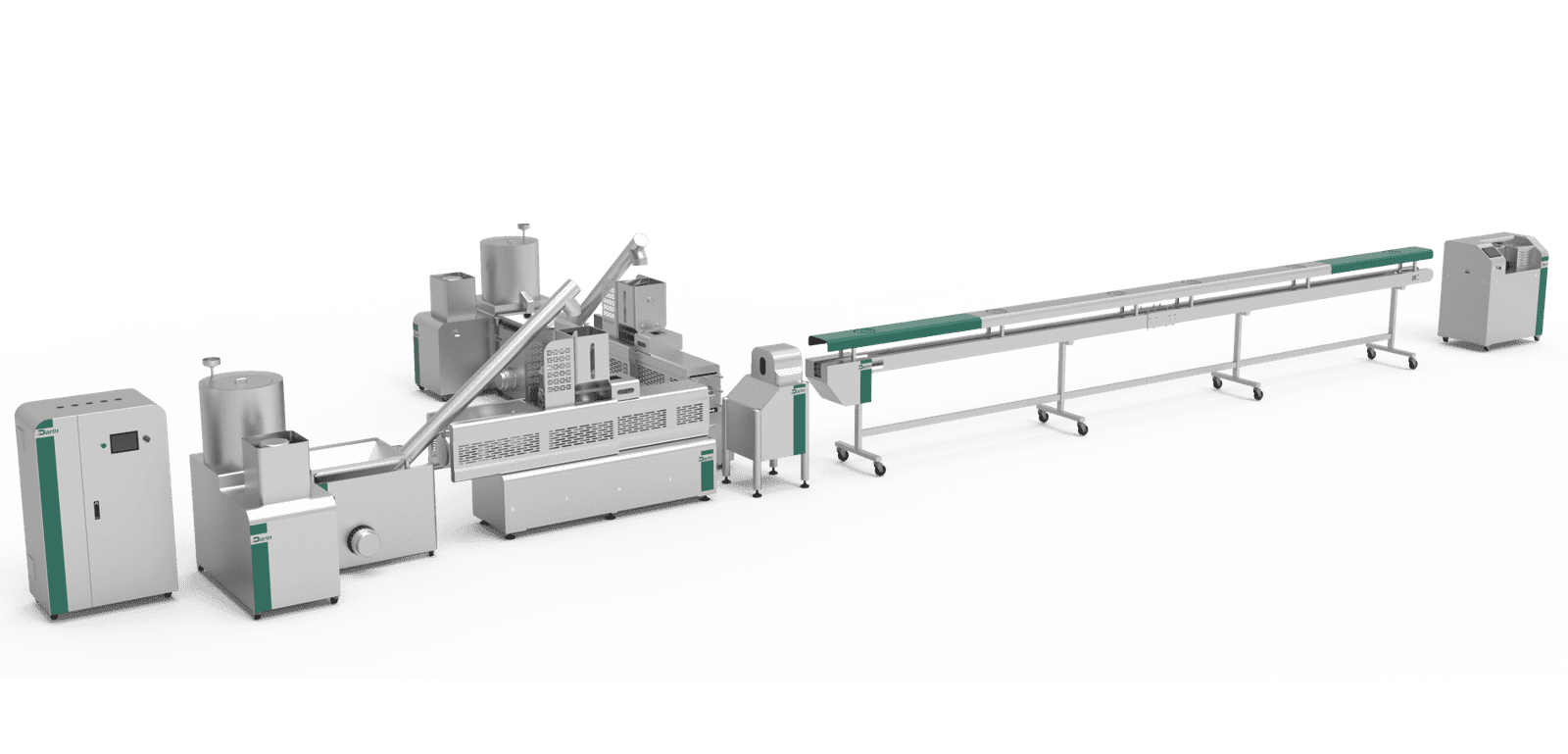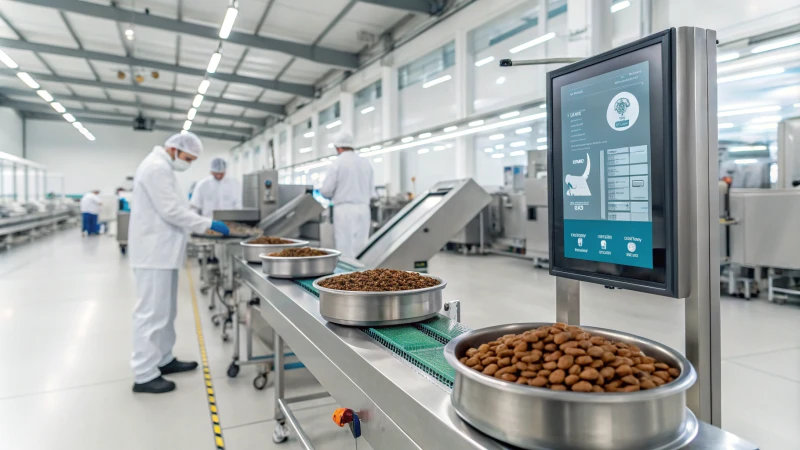
Imagine stepping into the vibrant world of pet food production, where every choice, like selecting the right extruder manufacturer, shapes your success.
To choose the right extruder manufacturer, consider factors such as technological innovation, quality certifications, global reach, and after-sales support. Evaluate each manufacturer’s track record with large-scale clients and their ability to meet international standards.
Reflecting on my own journey in the pet food industry, I've realized that finding the right manufacturer isn't just about ticking boxes. It's like finding a dance partner who matches your rhythm. Beyond the essential credentials, I look for someone who shares my vision and passion for excellence. It's about collaboration and trust, knowing they’ll stand by you long after the machines start running. Let’s dive deeper into what makes a great match.
Technological innovation is crucial in selecting an extruder manufacturer.True
Innovation ensures up-to-date technology, enhancing production efficiency.
After-sales support is unnecessary when choosing an extruder manufacturer.False
After-sales support is vital for ongoing maintenance and troubleshooting.
What Are the Key Factors in Evaluating an Extruder Manufacturer?
Selecting the perfect extruder manufacturer is like finding a needle in a haystack, yet it’s crucial for boosting production efficiency and quality. Here’s how I ensure the right fit for my business.
Evaluate an extruder manufacturer by assessing product quality, certifications, customization options, after-sales support, and industry reputation. These factors ensure optimal alignment with production needs and industry standards.
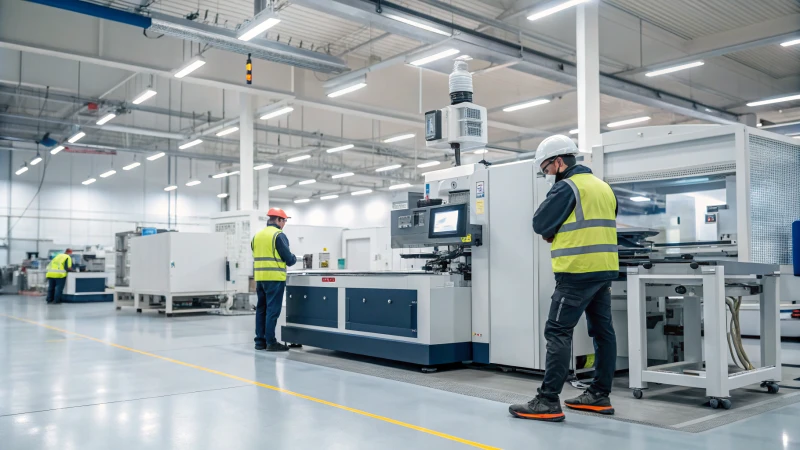
Assessing Product Quality and Certifications
For me, the journey of choosing an extruder manufacturer begins with scrutinizing the machinery's quality. I vividly remember a time when I overlooked this step, only to face constant breakdowns. Now, I ensure each component is top-notch, enhancing durability and performance. I also check for CE and ISO certifications1—these badges are like a seal of trust, proving that their products meet international reliability standards.
Customization Options and Innovation
In my quest for a perfect match, I discovered the power of customization. A manufacturer that offers tailored solutions is like a trusted ally who knows exactly what I need. Look for those who showcase innovation—whether through patents or groundbreaking features in their extrusion technology2. It’s akin to finding a partner who's not just keeping up with industry trends but setting them.
| Factor | Importance |
|---|---|
| Product Quality | Ensures durability and performance |
| Certifications | Validates international standards |
| Customization | Allows tailored solutions |
| Innovation | Indicates adaptability and growth |
After-Sales Support and Training
Having once been left in the lurch by poor after-sales support, I now prioritize comprehensive service and training. It's reassuring to know help is just a call away, especially when operating in diverse international markets3. Quick response times can be a lifesaver, reducing downtime significantly.
Industry Reputation and References
Finally, I delve into the manufacturer's industry reputation. Partnering with well-regarded brands has taught me that a solid reputation speaks volumes about reliability. I always ask for references from current clients—there’s nothing like hearing about real-world experiences to gauge their customer service4 and machine performance over time. It’s these insights that have often guided me to the right choice.
CE and ISO certifications ensure product reliability.True
These certifications validate that products meet international quality standards.
Customization options are irrelevant for extruder machines.False
Customization allows tailoring machines to specific production needs, enhancing efficiency.
How Do Technological Innovations Impact Your Choice?
Ever wonder how technology really sways your decisions, from what you buy to how you live?
Technological innovations impact choices by offering new options, enhancing decision-making with data, and creating expectations for efficiency. They influence consumer behavior and business strategies through automation, personalization, and connectivity.

The Role of Data and Analytics
Growing up, I always loved how numbers could tell a story. My fascination with data only deepened as I ventured into the world of pet food machinery. Today, with the rise of big data5, it's incredible how technology allows us to make informed choices. Real-time data access feels like having a crystal ball for precise forecasting and trend analysis. Imagine being able to predict what your customers want before they even know it themselves—data makes that possible.
Example: Consumer Preferences
Companies are now like detectives, using data analytics to understand consumer preferences. I remember the first time a pet food brand used purchase patterns to predict future needs; it felt like magic. By adjusting their offerings based on this data, they've managed to stay ahead in a fast-paced market, just like reading minds but with numbers.
Automation and Efficiency
The sound of machinery humming away efficiently has always been music to my ears. Technological advancements in automation streamline operations across industries. Take the pet food sector—automated production lines not only increase output but ensure that quality is never compromised. It's like having an army of robots working tirelessly to meet global demand efficiently.
| Technology | Impact on Choice |
|---|---|
| Automation | Increases efficiency and lowers costs |
| Robotics | Enhances precision and consistency |
Personalization and Customization
We're living in an age where everyone wants everything tailored just for them. Technology makes this possible, allowing companies to personalize products and services. In the pet food industry, brands offer specialized dietary options, like grain-free or organic pet foods, based on consumer preferences. Just think about how online retailers seem to know exactly what you want before you even do!
- Pet Food Industry: Brands are crafting specialized dietary options, catering to the unique needs of our furry friends.
- Tech in Retail: Algorithms work behind the scenes to recommend products based on your browsing history.
Connectivity and Communication
I remember setting up my first smart home device and marveling at the sheer convenience it brought into my life. The Internet of Things (IoT6) is like having an invisible assistant that connects devices for seamless communication and control. This connectivity influences choices by providing convenience and control over everyday tasks.
Example: Smart Homes
Smart home devices let us manage energy consumption remotely—a game-changer when deciding how we use resources efficiently.
Emerging Technologies
Every time a new technology emerges, it's like opening a door to endless possibilities. But with opportunities come challenges. Staying informed about these tools is crucial for businesses wanting to leverage them effectively.
- Blockchain: Offers transparency in supply chain management, ensuring every step is visible.
- Artificial Intelligence: Enhances customer service with chatbots and virtual assistants, making interaction smoother.
Understanding these impacts helps me—and hopefully you—navigate the ever-evolving landscape of technological innovation. It's essential to adapt to these changes to remain competitive and meet the growing demands of today's tech-savvy consumers.
Big data improves decision-making through precise forecasting.True
Real-time data allows for accurate trend analysis, aiding decisions.
Automation in the pet food sector decreases product quality.False
Automation increases output while maintaining quality standards.
Why Are Quality Certifications Essential in Selecting a Manufacturer?
Ever wondered how to ensure your products are top-notch and globally trusted? The secret lies in selecting a manufacturer with quality certifications. Let me tell you why these matter so much.
Quality certifications assure that manufacturers meet international standards, enhancing product reliability and market trust. They minimize risks by confirming compliance with safety and quality regulations, ultimately supporting your business's success.
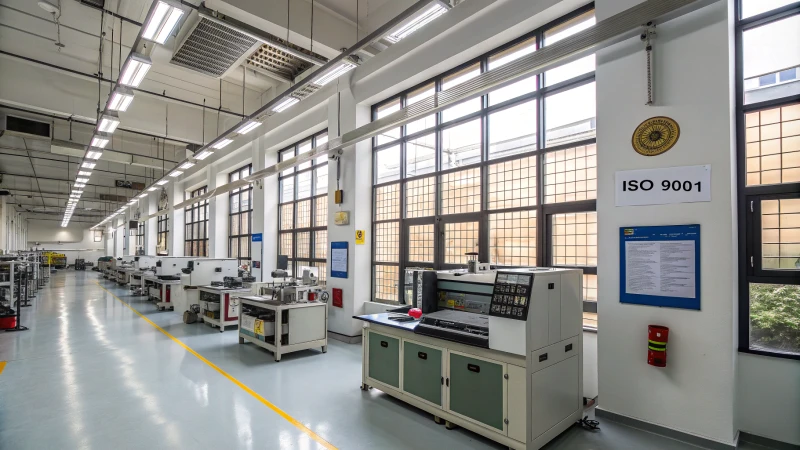
Ensuring Compliance with Standards
I remember the first time I realized the true value of quality certifications like ISO 9001 or CE. It was during a high-stakes partnership with a major pet food brand. They needed assurance that our machinery could consistently meet stringent international standards7. These certifications didn't just guarantee safety and quality; they confirmed our capability to meet both customer and regulatory demands with unwavering consistency.
Enhancing Product Reliability
A personal story comes to mind about a time when our production line faced unexpected challenges. Thanks to our certified processes, we could quickly identify and rectify the issue, maintaining the product's reliability and consistency. In industries like pet food, where safety is paramount, this reliability is not just a bonus—it's a necessity.
Building Trust and Credibility
I’ve seen firsthand how certifications such as ISO 9001 become a badge of honor. They’re not just pieces of paper; they are testimonies of trust. When we partnered with renowned brands, our certifications played a pivotal role in building credibility and trustworthiness. They are crucial when reputation can make or break your market position.
Supporting International Market Access
Expanding into new markets is always a thrilling venture. I’ve watched as international certifications served as our golden ticket, smoothing our entry into diverse global arenas. These certifications speak a universal language, reassuring global partners that we comply with local regulations, making international expansion much more seamless.
| Certification Type | Purpose |
|---|---|
| ISO 9001 | Quality management systems |
| CE | Compliance with EU safety standards |
| APPA Membership | Recognition in the pet products sector |
Minimizing Business Risks
I can't stress enough how collaborating with certified manufacturers helps minimize risks associated with production failures and recalls. By ensuring adherence to recognized quality standards8, you not only shield your business from non-compliance penalties but also avoid the financial and reputational fallout of product recalls.
Staying Competitive in the Industry
The manufacturing world is fiercely competitive. I’ve learned that investing in certified manufacturers is akin to staking a claim on quality leadership within your sector. Certifications are not merely about compliance; they are markers of excellence that help your company stand out in a crowded marketplace.
ISO 9001 ensures consistent product quality.True
ISO 9001 is a quality management standard that ensures consistent quality.
CE certification is irrelevant for EU market access.False
CE certification is crucial for products to be sold in the EU market.
Why Does Global Reach Matter When Choosing a Manufacturer?
Ever wonder why global reach matters when choosing a manufacturer? Let me tell you, it’s not just about covering more ground—it’s about ensuring quality and reliability across the board.
Global reach plays a pivotal role in manufacturer selection by showcasing a company's capability to operate across multiple markets, ensuring quality, reliability, and adherence to international standards, which is essential for meeting diverse customer needs.

Global Reach as a Marker of Quality
When I first started exploring manufacturers for my business, it became clear that those with a global presence stood out in terms of quality assurance. These manufacturers tend to comply with stringent international standards. The certifications like CE and ISO aren’t just acronyms—they’re a testament to their commitment to excellence. For instance, when General Mills9 looks for partners, they seek out those who have these high standards. I learned early on that this was a non-negotiable factor if I wanted to ensure my products met regulatory requirements everywhere.
Diverse Market Adaptability
A huge advantage of working with a globally active manufacturer is their ability to adapt to different markets. Imagine needing to customize pet food production for various dietary preferences around the world. That’s exactly the challenge these manufacturers tackle every day. Whether it's scaling up operations in the U.S. or adjusting to smaller demands in emerging markets like Mexico, their adaptability is impressive. I remember once needing a quick shift in production strategy due to a sudden change in market demands, and having a manufacturer with this capability saved the day.
| Region | Key Characteristics |
|---|---|
| United States | High demand for large-scale production |
| Europe | Strict quality and environmental standards |
| Australia | Preference for innovative pet products |
| Developing Markets | Emerging demand for reliable supply chains |
Consistency and Reliability
Consistency is key, especially when your products reach customers across the globe. I’ve found that manufacturers with a broad reach are masters at delivering consistent product performance. They utilize cutting-edge technologies and hold numerous invention patents to maintain this consistency. It’s this reliability that instills trust and keeps clients coming back, no matter where they are located.
Strategic Partnerships
Partnering with globally renowned brands has been another significant benefit of choosing manufacturers with an extensive reach. Collaborations with big names like Kellogg’s10 add credibility and open doors to new markets. For me, these partnerships are more than just business—they’re about building lasting relationships based on mutual reliability and efficiency.
Expanding into Emerging Markets
Emerging markets are teeming with opportunities, and manufacturers with a global reach know how to seize them. I’ve seen firsthand how expanding into places like Southeast Asia and Latin America can skyrocket growth. It’s not just about having a physical presence; it’s about understanding local nuances and market dynamics to meet rising demands effectively.
Manufacturers who leverage global reach truly gain a strategic advantage. Their ability to consistently deliver quality and innovation while understanding diverse markets sets them apart. If you’re weighing options, remember that choosing such a partner can transform how you meet customer expectations worldwide.
Global reach guarantees high product quality.False
While global reach often indicates quality, it doesn't guarantee it.
Manufacturers with global reach adapt to market needs.True
These manufacturers customize solutions for diverse regional requirements.
How Important Is After-Sales Support When Choosing a Manufacturer?
Picture this: you've invested in high-end machinery, only to feel stranded when issues arise. That's where after-sales support becomes your safety net.
After-sales support is crucial when choosing a manufacturer because it ensures ongoing maintenance, troubleshooting, and customer service, directly affecting product longevity, operational efficiency, and customer satisfaction.

I remember when I first started exploring manufacturing options for my machinery needs. I was impressed by the sleek designs and cutting-edge technology some companies offered. Yet, what really caught my attention was a story I heard from a fellow entrepreneur. They had chosen a manufacturer solely based on initial price and performance metrics, neglecting to consider the after-sales service. A few months in, when they needed urgent repairs, they were met with unresponsiveness and delays. That was a wake-up call for me.
Ensuring Product Longevity
Selecting a manufacturer with robust after-sales support isn't just about ticking a box; it's about securing peace of mind. Knowing there's a team ready to jump in for maintenance and repairs can be a game-changer. It's like having a personal trainer for your machinery, ensuring it stays in peak condition. I've found that manufacturers who offer comprehensive support packages11 often extend the life of their equipment significantly.
Enhancing Operational Efficiency
Imagine this: your production line halts unexpectedly, and each minute of downtime feels like an eternity. Manufacturers that promise 24/7 support or have dedicated service teams can feel like heroes in such moments. Quick troubleshooting and repairs mean you’re back on track with minimal disruption. In my experience, those with a knack for swift problem resolution12 quickly become invaluable partners.
Building Customer Relationships
There's something deeply reassuring about knowing you can pick up the phone and speak to someone who genuinely cares about your business success. This type of responsive after-sales support doesn’t just fix problems; it builds trust and fosters long-term relationships. For me, it’s about finding manufacturers that truly prioritize customer relationship management13.
Evaluating Support Through Testimonials
Before making my choice, I always delve into customer testimonials. They’re like personal stories that highlight both the triumphs and pitfalls of after-sales support quality. Reading about others’ experiences helps me anticipate potential challenges and benefits. I make sure to check out platforms that offer verified customer reviews14.
| Consideration | Importance |
|---|---|
| Product Longevity | Increases lifespan of machinery with regular maintenance |
| Operational Efficiency | Reduces downtime with swift repairs |
| Customer Relationships | Builds trust and loyalty through effective support |
| Testimonial Insights | Provides real-world feedback on service quality |
Cost Implications of Poor Support
I've learned the hard way that cutting corners on after-sales support can lead to unexpected costs down the line. Frequent repairs and replacements quickly eat into budgets. Understanding these financial pitfalls is crucial. That's why I value manufacturers who offer extended warranties15, safeguarding both my equipment and my peace of mind.
After-sales support extends product lifespan.True
Strong after-sales support provides maintenance and repairs, prolonging machinery life.
Testimonials are irrelevant for evaluating support.False
Testimonials offer real-world feedback on a manufacturer's after-sales service quality.
What Market Expansion Opportunities Should You Consider?
Ever wondered how to give your business the growth boost it needs?
To explore market expansion, consider geographic diversification, product line extension, and partnerships. Assess emerging markets, tailor products to local needs, and leverage strategic alliances to maximize growth potential.

Exploring Geographic Diversification
When I first contemplated expanding into new territories, the thought was both exciting and daunting. Like many, I started with regions where the demand for pet food was on the rise, such as Southeast Asia and Latin America. These areas are like hidden treasure chests waiting to be unlocked, but they require a deep understanding of local tastes and regulations. Remember that time I tried introducing my favorite dish to a friend only to find out they had dietary restrictions? Expanding into new regions is a bit like that; you need to know what’s on their menu before serving.
Researching these aspects can help tailor products to meet local needs16.
Product Line Extension
Think of product line extension like that moment when I discovered adding a pinch of spice to my usual recipe made all the difference. Offering premium or customized pet food lines can open doors to niche markets. It’s not just about broadening your reach; it’s about enhancing your brand’s story. By listening closely to what customers crave, you might uncover opportunities for innovation that you never imagined.
| Market | Potential Products | Strategy |
|---|---|---|
| Southeast Asia | Premium pet treats | Localized flavors |
| Latin America | Customized pet food | Nutritional customization |
Forming Strategic Partnerships
I vividly recall partnering with someone who knew all the ins and outs of a complex project I was working on. Collaborating with established brands or institutions can fast-track your market entry and lend you credibility. Imagine teaming up with giants like General Mills or Kellogg’s; it’s like having a seasoned guide on an unfamiliar trail. Plus, local partnerships can offer invaluable insights into cultural nuances that might otherwise elude you.
Collaborating with local businesses can enhance the business strategy17.
Targeting Emerging Markets
Emerging markets are like new frontiers waiting to be explored. With less competition and a burgeoning middle class, they offer fresh opportunities for expansion. But remember, understanding these regions’ cultural and economic landscapes is crucial—like learning the dance steps before hitting the floor at a wedding.
Conducting thorough market research can help you navigate these waters successfully, perhaps through joint ventures or franchising.
Leveraging Technological Innovation
In today’s world, embracing technology is like adding a turbo boost to your business engine. It draws in the tech-savvy crowd while optimizing operations. I’ve seen firsthand how adopting smart manufacturing practices like IoT and AI can transform production processes, ensuring consistency and quality—much like perfecting a recipe over time.
Emphasizing innovation through technological advancements18 not only attracts tech-savvy customers but also improves operational efficiency.
Each expansion strategy should be in harmony with your core strengths and business objectives, ensuring growth is sustainable without stretching resources too thin. Just like when planning an epic road trip, you need to ensure your vehicle (or business) is well-equipped for the journey ahead.
Southeast Asia has a growing demand for pet food products.True
Southeast Asia's rising demand makes it a viable expansion market.
Collaborating with local businesses hinders market entry.False
Local partnerships enhance cultural understanding and strategy.
Conclusion
Choosing the right extruder manufacturer involves evaluating technological innovation, quality certifications, customization options, after-sales support, and industry reputation to ensure optimal production efficiency and collaboration.
Learn how high-quality components contribute to machine durability and consistent production performance. ↩
Explore the latest technological advancements in extrusion that could benefit your production processes. ↩
Discover strategies for effective management of extrusion machinery across global locations. ↩
Find out how to assess the quality of customer service provided by extrusion equipment suppliers. ↩
Explore how big data provides insights that improve forecasting and trend analysis. ↩
Learn how IoT connects devices for seamless communication and control. ↩
ISO 9001 certification enhances process efficiency and product quality, benefiting both the manufacturer and its clients by ensuring consistent delivery of high-quality products. ↩
Understanding quality standards helps businesses mitigate risks by ensuring compliance, reducing defects, and preventing costly recalls or penalties due to non-compliance. ↩
Explore why General Mills partners with globally certified manufacturers for high-quality production. ↩
Discover how Kellogg's selects manufacturing partners with robust global capabilities. ↩
Explore how comprehensive support packages extend the life of machinery through regular maintenance and prompt services. ↩
Learn why swift problem resolution minimizes operational downtime and enhances efficiency. ↩
Understand how effective customer relationship management fosters trust and encourages repeat business. ↩
Discover how verified reviews offer real-world insights into a manufacturer's service quality. ↩
Find out how extended warranties can mitigate financial risks associated with machinery repairs. ↩
Exploring this link helps understand cultural preferences, regulatory requirements, and successful case studies in Southeast Asia. ↩
This link provides insights into leveraging partnerships for resource access, market credibility, and strategic advantages. ↩
Clicking here reveals how integrating technology can enhance product offerings and operational efficiencies. ↩


